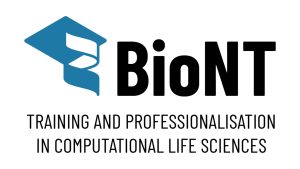Best practices
Evaluating micro-credential-readiness level of the provided courses
Users: Training Providers (Private), Training Providers (Public) | Theme: Accreditation and certification | Action: Framework/methodology | Beneficiaries: Training Providers (Private), Training Providers (Public).
- It strengthens the interconnectedness of educational systems and supports greater learner mobility.
- It establishes micro-credentials as a trusted quality-control tool that, when widely applied, ensures lifelong learning courses are consistent in their content, preparation, promotion, and documentation. This, in turn, increases trust in the certificates issued and supports more reliable hiring processes.
The challenge?
For many training providers who wish to implement micro-credentials for their existing courses, including BioNT, the main challenge lies in determining how well existing courses align with the formal requirements for issuing micro-credentials. While the courses may already follow strong quality standards, it is often unclear which aspects fully meet the criteria and which fall short. Therefore, a practical tool to support training developers and providers in the evaluation of the level of course readiness was needed. This tool would help to identify eventual gaps in compliance, and to understand precisely which elements of the course design, delivery, and documentation would need to be adapted. The Recommendation by the Council is a legal document which does list requirements, but does not provide guidelines on their practical meaning and is therefore difficult to implement for many training developers who are not dealing with policy or legal documents on a regular basis.
Organisation providing lifelong learning directed courses as a main or side activity invest substantial effort in designing and delivering training, training materials, information, and documentation. To prove the training quality, these organisation could highly benefit from applying the micro-credentials framework and for this, they need to understand how much their offers already align with the requirements, and identify the gaps and aspects they need to improve.
Our solution
To solve these challenges, BIoNT created a practical evaluation form which lists mandatory and recommended elements of the micro-credential requirements, and guides the form users to evaluate their course against these elements. Specifically, the form prompts to:
- Check whether the courses meet all mandatory elements required for issuing a micro-credential.
- Identify gaps that prevent compliance.
- Collect structured information on course design, delivery, and quality assurance procedures.
- Plan the structure, dissemination, documentation and delivery of courses in alignment with the micro-credentials requirements for lifelong learning courses.
The form is implemented as an Excel sheet containing a checklist of required tasks based on the Council of Europe recommendations. Each question is supported by definitions, examples, and fields where training developers and providers can add concrete information alongside checking compliance.
The form is freely available for download here: https://biont-training.eu/training.html.
Outcomes
The BioNT consortium used the form the form to assess all the training offers. This provided a highly valuable comparative overview of the structural differences between courses and highlighted which quality elements needed strengthening to meet the micro-credential standards.
Even if a course organiser chooses not to pursue full micro-credential certification—for example, in the BioNT case, where some courses cannot include learner identification or formal assessment for confidentiality reasons—the form still adds value. It helps clarify which elements prevent compliance and whether adjustments are possible or even desirable.
The form has already gained recognition: it was selected through a competitive process for presentation at the European core facilities meeting organised by the CTLS association, where it attracted strong interest from peers.
Key takeaways
Anyone interested in evaluating their own courses can download the form from the BioNT website (https://biont-training.eu/training.html). Completing it requires approximately 15 minutes per training offer.
We recommend answering all questions:
- Multiple-choice options are based directly on the Council of Europe’s micro-credential recommendations. When a mandatory element is missing, the corresponding field automatically turns red.
- Text boxes allow organisers to document additional information; when this field is mandatory, it is written in the column on the right.
- At the end of the form, users will also find supporting resources, including:
o A learning objectives ontology based on Bloom’s taxonomy.
o A description of the European Qualifications Framework (EQF) levels and their meaning.

